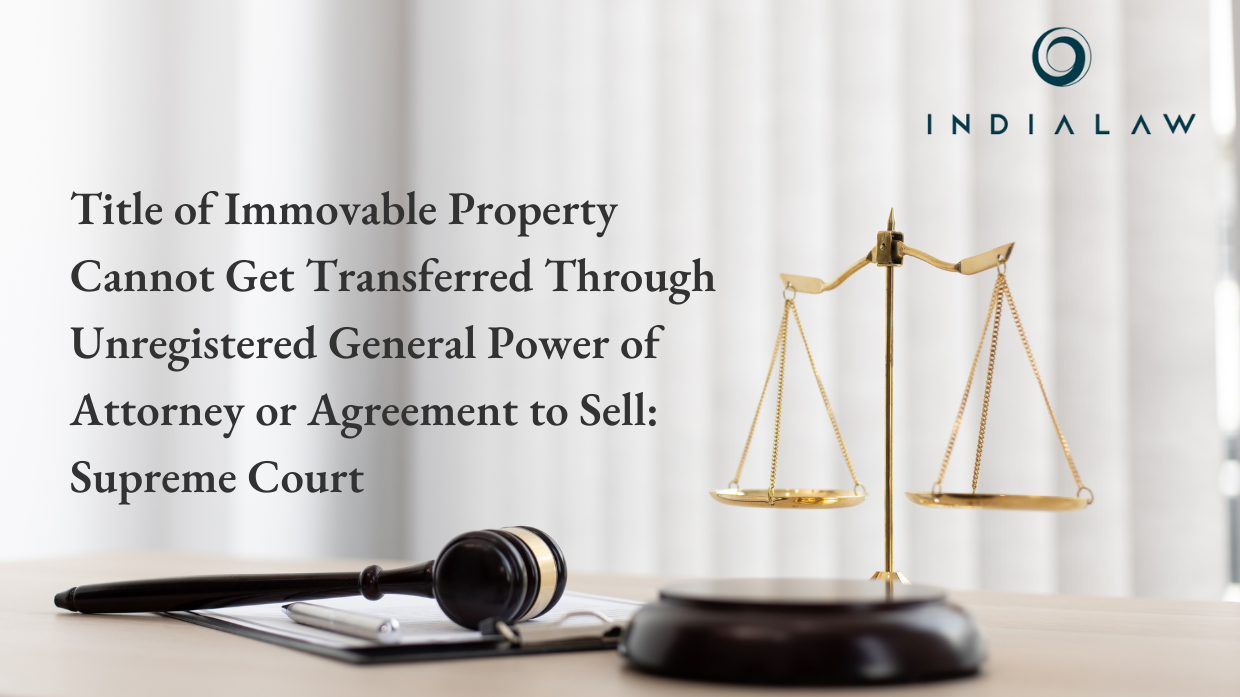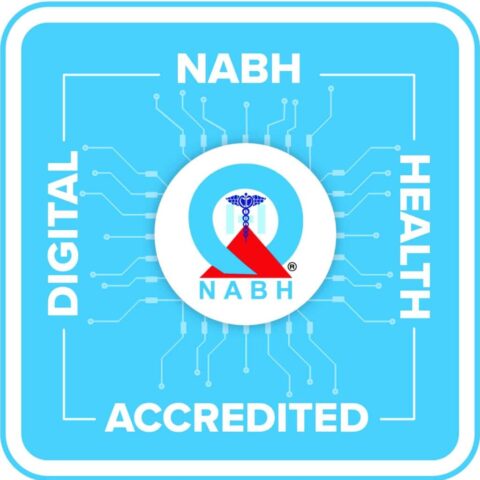Title of Immovable Property Cannot Get Transferred Through Unregistered General Power of Attorney or Agreement to Sell: Supreme Court

The recent judgment[i] of the Hon’ble Supreme Court has cast a significant light on the legal issues pertaining to the transfer of immovable property titles. The Supreme Court Bench comprising Justices Vikram Nath and Rajesh Bindal, underscored a crucial principle of Registration Act and Property Laws that the transfer of title in immovable properties cannot be effectuated through an unregistered General Power of Attorney or Agreement to Sell.
The Supreme Court stated that “…No title could be transferred with respect to immovable properties on the basis of an unregistered Agreement to Sell or on the basis of an unregistered General Power of Attorney. The Registration Act 1908 clearly provides that a document which requires compulsory registration under the Act would not confer any right, much less a legally enforceable right to approach a Court of Law on its basis.”
It added that “Even if these documents, i.e. the Agreement to Sell and the Power of Attorney, were registered, still it could not be said that the respondent would have acquired title over the property in question. At best, on the basis of the registered agreement to sell, he could have claimed relief of specific performance in appropriate proceedings. In this regard, reference may be made to sections 17 and 49 of the Registration Act and section 54 of the Transfer of Property Act, 1882”.
Brief background of the case
An appeal was filed by the Appellant (Shakeel Ahmed) challenging the order of the High Court which affirmed the decision of the Trial Court, decreeing the suit for possession and mesne profits in favour of the Respondent (Syed Akhlaq Hussain). The Respondent had filed the suit as an Attorney on behalf of its owner Laiq Ahmed (brother of the Appellant) and Laiq raised no objection for the respondent seeking property’s possession.
The ownership over the property was claimed by the Appellant through an oral gift (Hiba) from his brother. The suit was filed based on the Power of Attorney, an Agreement to Sell, an Affidavit and a Will that was executed in favour of the Respondent. The property in question was in the possession of the Appellant, he claimed the ownership of the property on the ground that it was gifted to him from his brother.
Contentions of the Appellant
The Appellant averred that unregistered document, including the Agreement to Sell, Power of Attorney, Affidavit, and Will, confers no title of ownership on the Respondent. The ownership rights are with the Appellant as he has received the questioned property through an oral gift from his brother. The suit is not maintainable as the documents relied upon are neither enforceable nor admissible in law.
Contentions of the Respondent
The Respondent argued that the documents relied upon in the suit conferred absolute title and ownership rights to him. That a bar on registration of transfer/conveyance documents in the questioned property validated the transfers under customary documents and hence gives rightful ownership.
It was further argued by the Respondent that the case of Suraj Lamps & Industries Pvt. Ltd. Vs. State of Haryana and Anr. (Suraj Lamps Case) had a prospective application. That the decision of the Court in the said case does not have any impact on the title acquired through the customary documents executed in 2008 that is predated from the decision in Suraj Lamps case.
Analysis of the Supreme Court
The Supreme Court clarified that a title cannot be transferred of immovable properties through unregistered documents including Agreement to Sell and the Power of Attorney.
Reference was made to Section(s) 17 and 49 of the Registration Act and Section 54 of the Transfer of Property Act by the Court, to affirm that without registration of the document no right, title or interest can be conferred with respect to an immovable property.
The argument placed by the Respondent was rejected by the Supreme Court, that the decision in Suraj Lamps applies prospectively only. The Court emphasized that the legal requirement of compulsory registration and the adverse effect of non-registration are derived through the Registration Act and the Transfer of Property Act.
Decision of the Court
While allowing the appeal, the Supreme Court noted that suit filed by the Respondent cannot be maintained on the basis of unregistered documents. It clarified that “The embargo put on registration of documents would not override the statutory provision so as to confer title on the basis of unregistered documents with respect to immovable property. Once this is the settled position, the respondent could not have maintained the suit for possession and mesne profits against the appellant, who was admittedly in possession of the property in question whether as an owner or a licensee”.
Conclusion
This judgement of the Hon’ble Supreme Court serves as a clarion call to comply with legal formalities in property transactions. The Court has categorically asserted that a title cannot be transferred pertaining to immovable properties through an unregistered Agreement to Sell or General Power of Attorney. Vigilant compliance with laws and due diligence is imperative to ensure protection from legal pitfalls.
[i] SHAKEEL AHMED V. SYED AKHLAQ HUSSAIN, CIVIL APPEAL NO.1598 OF 2023, 2023 LiveLaw (SC) 1009
By entering the email address you agree to our Privacy Policy.



